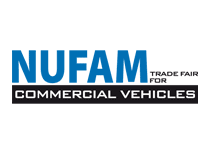Time slots in container terminals: Not at the expense of the forwarders
The German government's climate targets can only be achieved if freight transport is shifted on a large scale from the roads to the modes of transport rail and water.
The dilemma: the number of handling terminals needed for this can hardly be increased within the next few years. It follows that the existing capacities must be used much more efficiently. In addition to the large seaports, transhipment facilities in the hinterland are therefore also working on time window booking systems.
Digitalisation can make a major contribution to saving our planet. This is the conclusion of the study "Climate Effects of Digitalisation" published by the Bitkom association. The targeted and accelerated use of digital solutions alone could reduce CO2 emissions by around 50 percent (120 megatonnes) within the next ten years. This value is close to the climate target defined by the German government in 2019: according to this, CO2 emissions are to be reduced by 55 percent by 2030.
High load fluctuations
The modal shift from road to rail and water is an important building block here. The transhipment of goods between rail, (inland) waterways and HGVs takes place at ports and CT terminals distributed throughout Germany and Europe. Currently, high load fluctuations can be observed there. This is due, among other things, to peaks in truck arrivals or delays in train and ship arrivals. As a result, there are longer waiting times for trucks in and in front of the terminals when truck arrivals and high utilisation rates for rail and shipping transshipments overlap.
In order to improve the flow design, more and more terminals are introducing time slot booking systems (ZFBS) to smooth peak loads. The Port of Hamburg already made a start here in 2017. The terminal operators define time windows in which haulage companies can deliver and collect loading units. However, the first effect of the ZFBS is to smooth out the load from the terminal's point of view. For the haulage companies, they lead to an increase in the complexity of transport planning and thus to the shifting of inefficiencies between the actors.
Flexible and collaborative
A consortium led by TriCon Container-Terminal Nürnberg GmbH is therefore developing a flexible and collaborative time slot booking system for efficient cargo handling in CT terminals in the hinterland as part of a research project called "Flexiking". The aim of Flexiking is to develop a flexible and collaborative ZFBS. This concept is flexible in that it continuously takes into account the respective framework conditions when providing handling windows at the transshipment point per period. On this basis, more or fewer time slots are released, unbooked time slots are removed from the system or the length of the time slot is adjusted.
More flexibility
The concept is collaborative in that it provides a mechanism for both parties to renegotiate previously allocated time slots. The collaborative system is intended to incorporate the interests and degrees of freedom of the terminal as well as those of the haulage companies. In the event of changes in the general conditions, a dynamic adjustment of the time slot booking is possible by mutually agreeing to reschedule time slots.
Projects like Flexiking make it clear to what extent modern IT solutions can help reduce CO2 emissions. A study conducted by Accenture on behalf of the digital association Bitkom has already shown how great the influence of digitalisation actually is. According to this study, technology can contribute almost half of Germany's ability to meet its climate targets by 2030.

